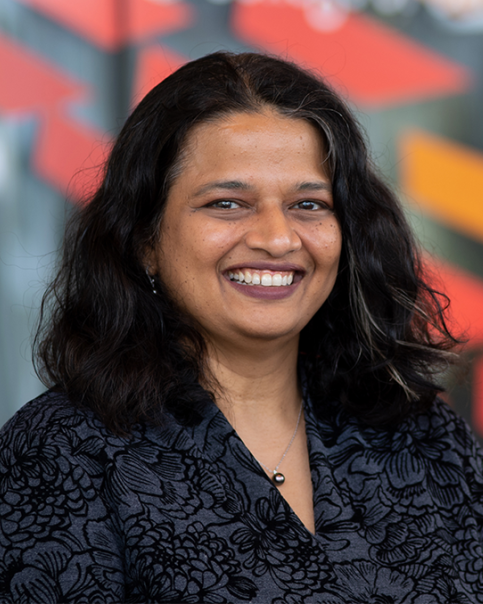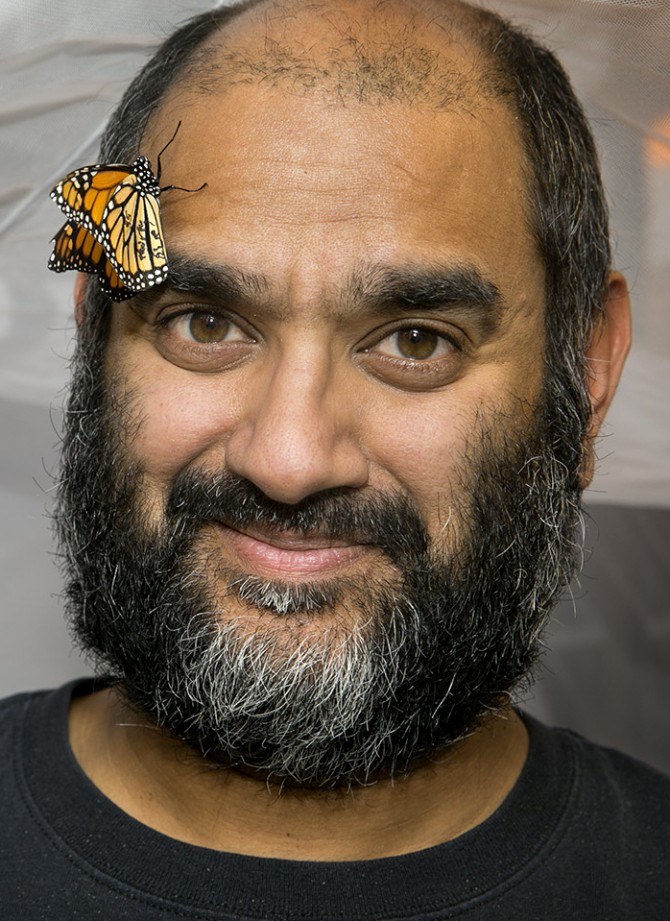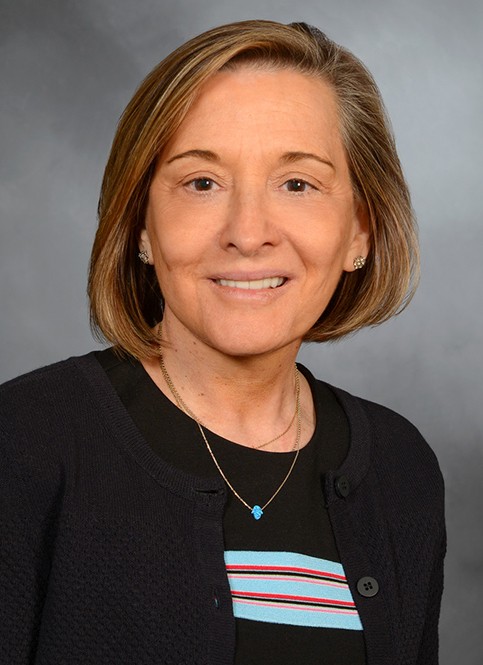Bala, Agrawal, Pascual elected to arts and sciences academy
By Tom Fleischman, Cornell Chronicle
Provost Kavita Bala and professors Anurag Agrawal and Dr. M. Virginia Pascual have been elected to the American Academy of Arts and Sciences, the academy announced on April 23.
They are among the nearly 250 new members of the academy, who were recognized for their excellence and who are invited to uphold its mission of engaging across disciplines and divides.
“These new members’ accomplishments speak volumes about the human capacity for discovery, creativity, leadership and persistence. They are a stellar testament to the power of knowledge to broaden our horizons and deepen our understanding,” said Academy President Laurie L. Patton. “We invite every new member to celebrate their achievement and join the academy in our work to promote the common good.”
This year’s induction ceremony will take place in October in Cambridge, Massachusetts.
Bala, a computer science professor and entrepreneur, became the 17th provost of Cornell on Jan. 1. She previously served as the inaugural dean of the Cornell Ann S. Bowers College of Computing and Information Science, leading the school through a time of rapid growth.
Bala previously served as lead dean of the Cornell AI Initiative, which has supported the AI Radical Collaboration, created minors in AI and AI in Society (to launch in 2025), and established the NewYork Presbyterian-Cornell Cardiovascular AI Initiative and the Schmidt AI for Science postdoctoral program. Bala also co-chaired a cross-campus task force to create guidelines for the use of generative AI in Cornell classes.
Prior to her appointment as dean, Bala was chair of Cornell’s Department of Computer Science. Her research focuses include computer graphics and computer vision, fields in which she has made fundamental contributions.
One important area of her research is on recognition of materials, styles and other object attributes in images. Her work using crowd-sourced training data has been influential; she pioneered work on style recognition using deep learning, technology that powered GrokStyle, a successful visual search AI startup that Bala co-founded.
“I am truly humbled by the recognition of this august society,” Bala said. “I am a first-generation student who came to graduate school in America drawn by the intellectual vision of the scientists and scholars in our educational institutions, and the promise of freedom and open inquiry.
“At Cornell,” she said, “I have been able to do my best work because of the support of extraordinary colleagues, mentors and collaborators across many disciplines. I am grateful to all who have been part of this journey.”
Bala received her B.Tech. degree from the Indian Institute of Technology, Bombay, and her master’s and Ph.D. in computer science from the Massachusetts Institute of Technology. She is an Association for Computing Machinery fellow (2019), a fellow of the SIGGRAPH Academy (2020) and recipient of the SIGGRAPH Computer Graphics Achievement Award (2020).
Agrawal is the James A. Perkins Professor of Environmental Studies in the Department of Ecology and Environmental Biology in the College of Agriculture and Life Sciences. His lab studies the ecology and evolution of plant-insect interactions, including aspects of herbivory, community ecology, phenotypic plasticity, chemical ecology, co-evolution and phylogenetics.
Recent research includes work on local biodiversity, ecology of invasive plants, the biology and conservation of monarch butterflies, and the evolution of plant defense strategies. Other major research areas include: the community and evolutionary ecology of plant-herbivore relationships, including several native plant systems (milkweeds, evening primroses, hog peanut and Eupatorium); chemically mediated interactions between plants and their specialized sequestering insects; and merging comparative and experimental ecology to study adaptive radiations.
Agrawal received his bachelor’s in biology and his master’s in conservation biology from the University of Pennsylvania (1994) and his Ph.D. in population biology from the University of California at Davis (1999). He was elected fellow of the American Association for the Advancement of Science in 2012, and was elected to the National Academy of Sciences in 2021.
Pascual is director of the Gale and Ira Drukier Institute for Children’s Health and the Ronay Menschel Professor of Pediatrics at the Weill Cornell Medicine School of Medical Sciences. Her lab works to understand the pathogenesis and to identify biomarkers and therapeutic targets for inflammatory and autoimmune diseases that start in childhood. Her lab applies systems-biology approaches to monitor the immune system of children suffering from these diseases through disease flares and remissions.
Current research areas include the pathogenesis and therapeutic targets in pediatric onset systemic lupus erythematosus (SLE), and juvenile dermatomyositis and COVID-19-related multisystem inflammatory syndrome in children (MIS-C).
“I feel tremendously grateful to the Academy for recognizing our efforts to understand pediatric autoimmune diseases,” Pascual said. “It is an honor to have been elected by my peers to such a prestigious organization that cultivates art and science to advance a free, independent and virtuous world.
“This recognition celebrates the contribution of many trainees and collaborators, the patients who have so generously participated in our studies through the years, and our vibrant scientific environment,” she said.
Pascual received her M.D. from Universidad Complutense Faculty of Medicine in Spain (1981). In 2017, she received the Lupus Insight Award from the Lupus Research Alliance. She was elected to the Association of American Physicians in 2018, and in 2020 she received the Distinguished Basic/Translational Investigator Award from the American College of Rheumatology.
Newly elected fellows of the academy include José Andrés of World Central Kitchen; filmmaker Ava DuVernay; actor Danny Glover; and journalist and activist Gloria Steinem.
There are now 174 Cornell-affiliated members of the academy, including geneticist and Nobel Prize winner Barbara McClintock, Class of 1923, M.A. 1925, Ph.D. 1927 (elected in 1959); physicist and Nobel Prize winner Hans Bethe (1962); chemist and Nobel Prize winner Roald Hoffman (1971); and astronomer Carl Sagan (1978).
Founded in 1780, the American Academy of Arts and Sciences is an honorary society that recognizes and celebrates the excellence of its members, and an independent research center convening leaders from across disciplines, professions and perspectives to address significant challenges.
Media Contact
Get Cornell news delivered right to your inbox.
Subscribe



